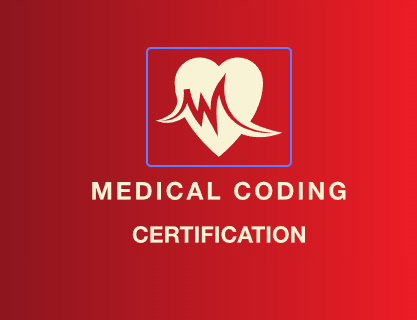Medical Coding Certification: Complete Guide
Medical Coding Certification adds an extra advantage to your professional career because Medical coding specialists have a particular responsibility for assigning the appropriate codes to diagnoses, treatments and procedures carried out by physicians, and use programs to classify these for the purposes of insurance billing or reimbursement to providers from Medicare, Medicaid or other funds.
Introduction :
Medical Coding Certification opens the door for you towards a whole new career.
Medical records and health information technicians currently enjoy excellent job prospects, especially those who are skilled in the use of computer software, and employment of workers skilled in this area is predicted to grow much more quickly than average.
Importance of Electronic Health Records :
One of the reasons for increasing demand for personnel who have been trained in medical record keeping is the rise in the use of electronic health records.
The nature of electronic patient data means that technicians need to be familiar with software programs, the issues relating to the security of patient information, and ways in which electronic information can be accessed and analyzed.
Medical coders do important work, because it facilitates payment of claims against a patient’s insurance policy.
It is a valuable way for health care organizations and government departments to research statistics and track data about medical conditions, their treatments and outcomes.
Medical Coding Certification Validates Skills
But being a certified medical coder is about a lot more than just knowing coding terminology and running specialist software: to gain these credentials, you will need to demonstrate knowledge of diseases, their processes and the techniques used to treat them.
It involves an understanding of the etiology and symptoms of medical conditions, along with a sufficient knowledge of human anatomy and physiology, the different tests used in diagnosis, and treatment methods.
You also need to be familiar with industry classification systems such as the ICD-9-CM.
Responsibilities :
Some of the Responsibilities of a Medical Coder includes:
- Data Entry
- Payment Posting,
- Dealing with correspondence,
- Deposits and Collections,
- Following up Unpaid Claims
- Producing Status Reports.
- Need to have a good eye for detail
- Familiarity with commonly used office applications as well as coding software
- Effective Communication Skills.
Benefits of Medical Coding Certification :
One of the major benefits of getting your certification as you plan to start your career in medical coding is that it’s a qualification that can give you an edge when you start to look for a job.
Employers want to know that the staff they hire have the requisite skills and knowledge to be effective in their roles. And as you progress in your career, you may consider getting more specialized training to enable you to apply for more advanced positions or jobs that carry greater responsibility.
Given the responsibility of this role, it’s not surprising that most hospitals and clinics look for proof of coding expertise by way of a professional medical coding certification.
Applicants interested in a career in this field can currently gain certification from the AAPC (American Academy of Professional Coders) and the AHIMA (American Health Information Management Association).
As well as the benefits of having qualifications that are nationally recognized by potential employers and professional organizations, getting certified can mean better pay prospects. A salary carried out by the AAPC showed that certified coders earned on average 20% more than their counterparts who did not have such credentials.
Type of Certification :
The type of certification taken depends on the career intentions of the candidate. The AAPC’s main CPC credential shows a thorough and wide-ranging knowledge of coding procedures.
It suits those who wish to work in a doctor’s office, a home health agency, a teaching environment or a similar setting.
The CPC-H certification is geared towards those who will work in an outpatient center or hospital or an ambulatory surgical facility.
The CPC-P credential is focused on those working with claims that have already been submitted, and might suit someone intending to work for an insurance company, a billing service, an auditing company, or similar.
Conclusion :
Getting your Medical Coding Certification training is a great investment in your professional future. It helps you to stay up to date with the latest standards and products, and keep in touch with other coding professionals. So take this opportunity to find out about medical coding training courses available in your area or online!

